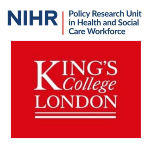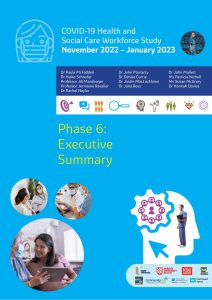Republished from the LSE Business Review Blog (12 October 2025).
Low pay, job insecurity and post-Brexit recruitment challenges are plaguing the adult social care sector in England. With rising demand and chronic underfunding, work conditions are only getting worse. Andreas Georgiadis and Andreas Kornelakis suggest ways to improve the situation, including better pay and training.
Adult social care suffers from a long-standing “workforce crisis” in England. Recent reports from industry bodies highlight the challenges to the sector’s workers and their ability to offer high quality care. Staff in social and health care are overworked, exhausted and stressed, sometimes to the point of becoming ill, leading to absenteeism or quitting altogether.
Increased workloads and time pressures arise partly due to increased demand for services by a rapidly ageing population. At the same time, over half of adult care providers said they faced challenges recruiting new staff; 31 per cent struggled to retain employees. Difficulties in recruitment and retention intensified after Brexit, as the sector relied heavily on migrant workers.
It is widely known that adult care is one of the lowest paying jobs in the UK. Forty-three per cent of all adult social care workers in England are paid below the real living wage. It will continue to be challenging for care providers to retain pay differentials between those on the wage floor and those with more experience and qualifications. But pay levels are not the only challenge for care workers, as they also face problems of job insecurity and unpaid overtime.
For example, most of those who do home visits are not compensated for the time they spend travelling to homes, which can make up to a fifth of their working day. The use of contingent contracts in social care may deliver some cost savings for providers, but has the drawbacks of job insecurity for workers, and concerns about service quality. Continue reading
 Dr Antonina Semkina
Dr Antonina Semkina

 In the context of ongoing challenges to the recruitment, retention, and motivation of around three million staff employed in health and social care, the NIHR Policy Research Unit in Health and Social Care Workforce in the Policy Institute at King’s College London (KCL) has announced its programme of work as it sets out on its next five years (2024-28).
In the context of ongoing challenges to the recruitment, retention, and motivation of around three million staff employed in health and social care, the NIHR Policy Research Unit in Health and Social Care Workforce in the Policy Institute at King’s College London (KCL) has announced its programme of work as it sets out on its next five years (2024-28). Dr Kalpa Kharicha
Dr Kalpa Kharicha